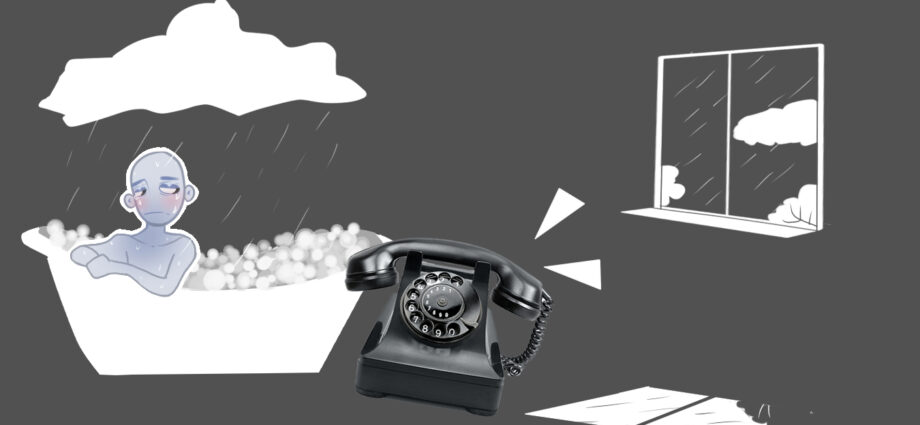By Arianna Belluardo
According to the Guardian: “cases of anxiety and depression around the world increased dramatically in 2020, researchers have found, with an estimated 76m extra cases of anxiety and 53m extra cases of major depressive disorder than would have been expected had Covid not struck.”
The quote above indicates the extent to which the pandemic has hit mental health. It is not hard to imagine, is it? I will be writing using plural pronouns. In this way I might be able to convince myself that I am not the only one going to extremely bad places from time to time. There’s this feeling I can’t shake down. This you-are-a-complete-failure feeling that takes me every once in a while. I wouldn’t call it a voice, because it is not whispering anything, it is more like a hunch. I feel like I am losing control of my everyday life, like there’s something far and beyond me observing from afar and crashing my deepest certainties.
After the pandemic, the hunch has become a fear, a solid, strong fear of the future. What am I going to do if this keeps going? I lived a life full of expectations for my future, and mustered up the confidence over what I was able to do. All of this vanished completely with the spreading of COVID-19.
My everyday strategy has always been avoiding the thoughts and telling myself one simple thing: stick to reality. Stick to actions, facts, deadlines, things I have to do in the short-period, like doing homework, seeing friends or running errands. I’ve been thinking for a long time what those moments meant, and who’s there waiting for me? Where will this feeling lead me if I follow it? The truth is I never tried, I was incredibly scared of getting to the bottom of that emotion, it was so dark I still do not understand how it was coming from me. I remember that during lockdown, I would just lay down on my bathroom floor, and talk myself out of these moments. I am not able to say if it worked, it probably did not.
Then I moved to the Netherlands and found more people who shared my struggles with mental health. Fortunately, the environment is open to mental illnesses as well as physical illnesses. Throughout my whole life I felt like my anxiety was like an appendix: a useless, hurtful, concealed part of me. I used to blame people who asked for deadline extensions, or skipped school, because of their mental state. I never thought about asking for academic help, and I took the most pride in at least appearing, like everybody else. I felt superhuman, a struggling soul in a strong, high-performing mind, who was able to succeed better than anyone else with less troubled pasts.
I wonder, after a few years of dealing with anxiety, why I decided to punish myself like this? Preventing myself from having that extra time that I need for myself, reaching out for help, and spending time with friends. If I had a broken leg, I would not climb the stairs, I would take the elevator. I would still reach the fourth floor, but I would not force myself to suffer under the pain of climbing stairs with a cast.
Then why should I behave differently with mental illness? It is still something that blocks me, prevents me from doing things, and even from being at the top of my intellectual capabilities most times. I got so used to believing it to be a part of me, something that I possess, cannot refuse, and will be with me forever. It is probably something I will have to stick with throughout my life, but why do I have to conceal, and behave like I don’t have it?
I once wrote, “it is the people who seem the worst off who are actually better because they are showing their sadness with no shame”. I want to be like the girl who wrote this, I want to be able to show my sadness with no shame, and nevertheless to feel it with no regret.
To the question of why we go to bad places and who is there waiting for us, I still have no answer. I do not know why some people are condemned to struggle more. Seneca, a famous Latin author, used to say that the people who struggle the most do so because they are able to survive the pain, as weaker people would crash under that same pain. I do not know whether Seneca was right, but what I do think is that we share this pain, and reason does not matter. I do not know if one can get out of it, fight it, leave it forever behind.
In the meantime, I will try to create a safe environment to be in, to feel protected and respected by the people surrounding me, and maybe one day, I will be able to read that sentence from Seneca again, and shout the loudest “fuck you” a human has ever heard.
Edited by Uilson Jones, artwork by Teresa Valle

